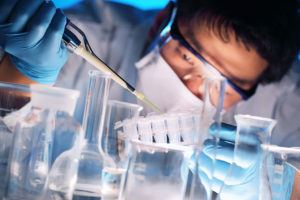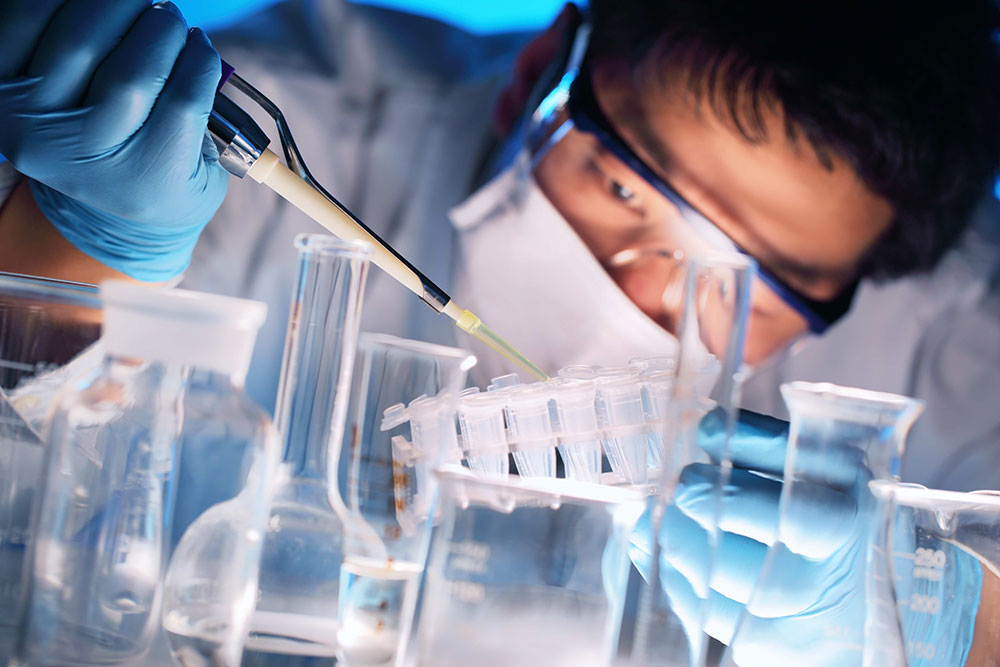Disclaimer: The information on our website is provided for general information purposes only. We make no representations or warranties of any kind, express or implied, about the completeness, accuracy, reliability, suitability or availability with respect to the website or the information contained on our website for any purpose. Any reliance on such information is therefore strictly at your own risk and we are not liable for any damages or losses arising out of or resulting from your reliance on any information contained on our website.
A biological technician collects samples for analysis and performs experiments on substances using lab equipment. They also maintain and clean the equipment they use as well as assist other biological and medical scientists with their experiments and tests. Biological technicians may also be called laboratory assistants.
Watch a video to learn what a biological technician:
How to Become a Biological Technician
Biological technicians generally have a bachelor’s degree in the biological sciences. When choosing a college program, it’s important to make sure that the curriculum includes biology courses with lab work experience. According to O*NET OnLine, almost 50% of those surveyed held a bachelor’s degree. Others continued with their education to earn a master’s degree or certification after their bachelors.
Job Description of a Biological Technician

Biological technicians perform lab experiments on collected samples for research. They use lab equipment, robotics, and computers in their daily tasks to analyze substances such as blood, water, soil, or other tissue. During the experiments, they would make observations and record their results. They may also need to submit a report to other scientists about their findings. In addition to experiments, biological technicians would know how to set-up, operate, and sanitize lab equipment to ensure substances are not exposed to cross-contamination.
A career as a biological tech also involves using different computer systems to store and analyze data. For example, the job may require using databases to organize and analyze the data, and summarizing it in reports. The job may require working on wildlife studies, helping with research and surveys, and monitoring the environment for conservation. It also involves assisting with capturing and taking care of wildlife and controlling non-native species. Additionally, there are general tasks like cleaning and maintenance around the office.
Biological Technician Career Video Transcript
Biological technicians may be involved in projects from ground breaking research, to cure a devastating disease, to sequencing DNA evidence that can help solve a criminal case. These technicians assist biological and medical scientists. They’re found in biotechnology companies and at medical and research facilities. They may work for the government or for private firms that make food products or pharmaceuticals. They set up, operate, and maintain laboratory equipment used in experiments and production. This increasingly includes working with robots, computer-interfaced tools, and electronic devices. The work usually involves living organisms or organic matter such as food, blood, or infectious substances.
Biological technicians often need to wear protective gear while handling and analyzing specimens. They monitor experiments and keep careful records that they later use to write detailed reports. Technicians often work in teams or under the close supervision of a more experienced scientist. Most technicians have a bachelor’s degree, although some entry level positions require only an associate’s degree, often in a biology-related program. Excellent math and communication skills and higher-level coursework can help a technician advance to the position of technologist. This is a career where your efforts could be part of a scientific breakthrough that improves lives all over the world.
Article Citations
Bureau of Labor Statistics, U.S. Department of Labor, Occupational Outlook Handbook, Biological Technician.
National Center for O*NET Development. 19-4021.00. O*NET OnLine.

